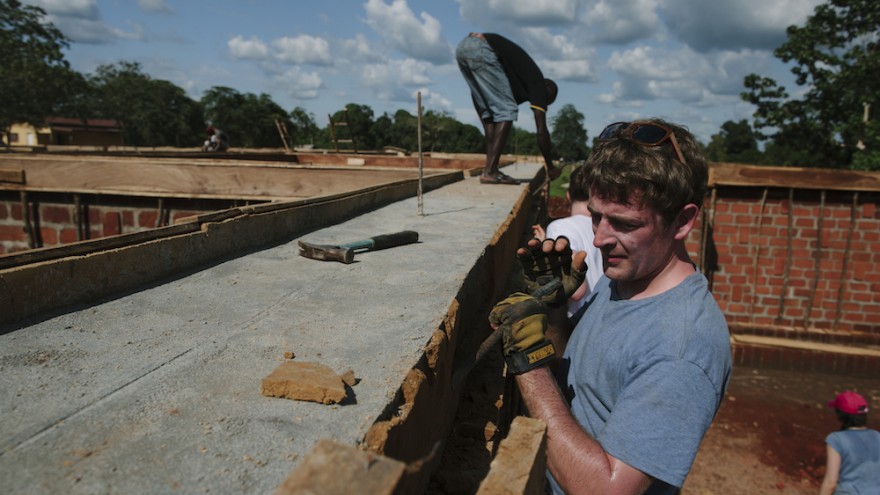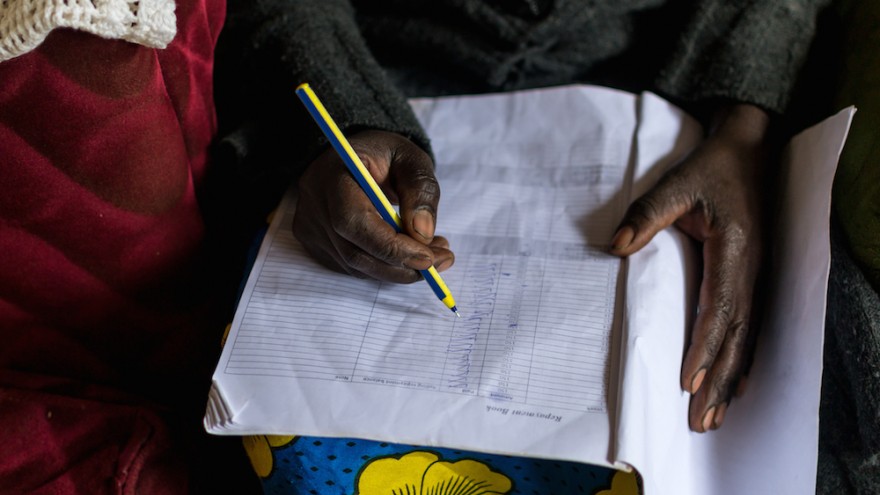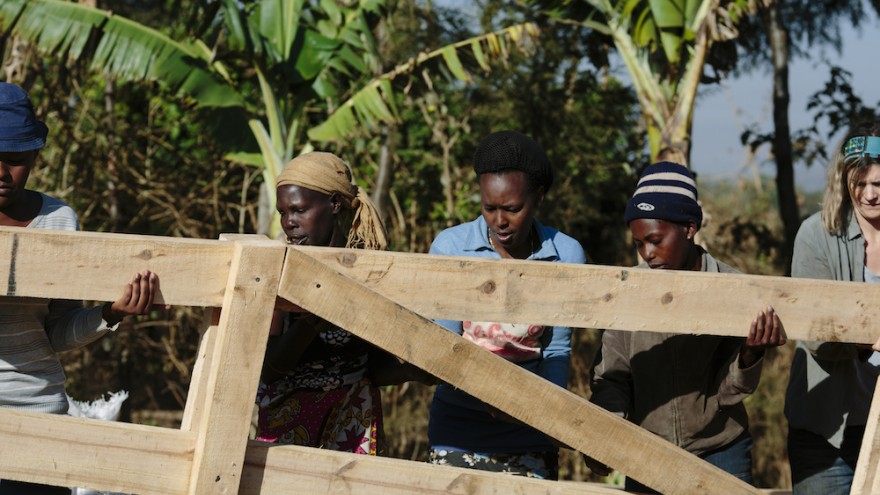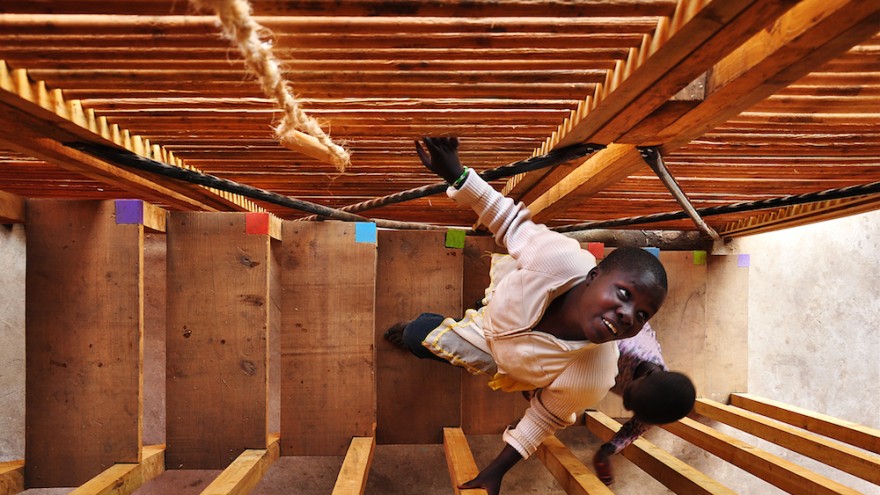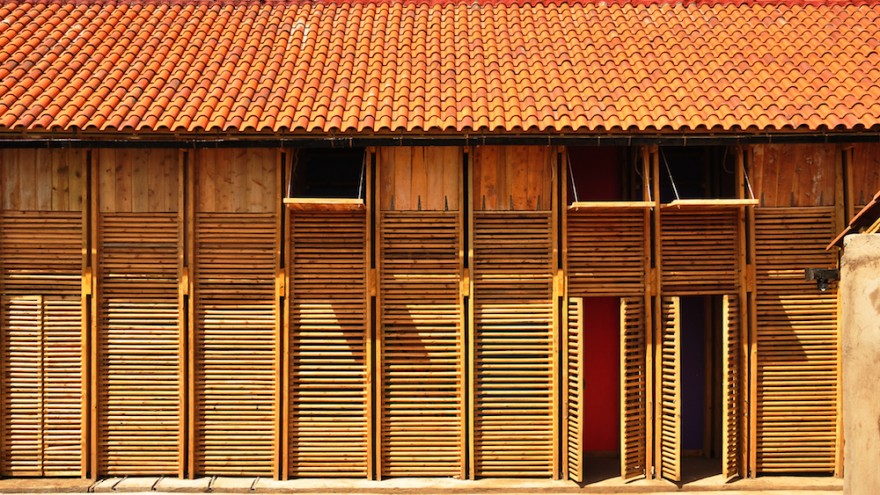James Mitchell is the founding director of Orkidstudio – a Glasgow-based humanitarian design and construction organisation that uses basic architectural skills as a foundation to help impoverished communities across Africa become self-sustaining. Here, Mitchell tells us about the values that define the studio and how the work they are doing is creating a fine line between architecture and community building.
Even though he was trained in architecture, Mitchell doesn’t see Orkidstudio as an architectural practice:
“We spend very little time in a design studio. We spend very little time doing design work, particularly in the traditional way."
We get as excited about helping set up a startup business or working with communities in other ways as we do about building buildings.
At the age of nineteen, Mitchell together with two university peers uncovered a statistic that revealed that the architecture industry helped out about one per cent of the world’s population. Not interested in the corporate-style careers that lay ahead of them, the students set off to Uganda to start work on their first community project in Kampala.
“It was probably a very defining experience. We didn’t choose to volunteer for any organisation or join another charity, and because we were so young at the time, we really didn’t have an awful lot to offer,” says Mitchell.
As a result we became incredibly dependent on the community, their skills and their understanding of the local materials and place.
This set the tone and community-orientated ethos for what was to become Orkidstudio. Having worked on various projects in African countries including Zambia, Kenya, Cameroon and Ghana, Orkidstudio has developed its own unique brand of social architecture that is driven by the goal of uplifting communities by upskilling and working together with them.
Mitchell says, “the core focus is always on the built environment and trying to come up with solutions that improve standards of living or infrastructure,” but he stresses that this is not necessarily what drives each project.
They are more interested in working with communities, imparting and exchanging skills through the building process and coming up with entrepreneurial ways to help sustain and further develop communities.
We use the design process or construction process as a tool for creating impact rather than looking at just the final product as a means of creating change, explains Mitchell.
This building process has become an educational experience for both the communities and the Orkidstudio team on the ground. It becomes a two-way learning process that involves drawing from local knowledge and exchanging ideas to come up with sustainable solutions.
Aside from imparting building and design skills, Orkidstudio is committed to helping locals become more self-sufficient so that they don’t have to rely on foreign aid and resources to develop their communities.
We now spend a lot of our time setting up community enterprises and businesses that can generate funding for building housing or local schools – it’s about getting the community to take charge, says Mitchell.

